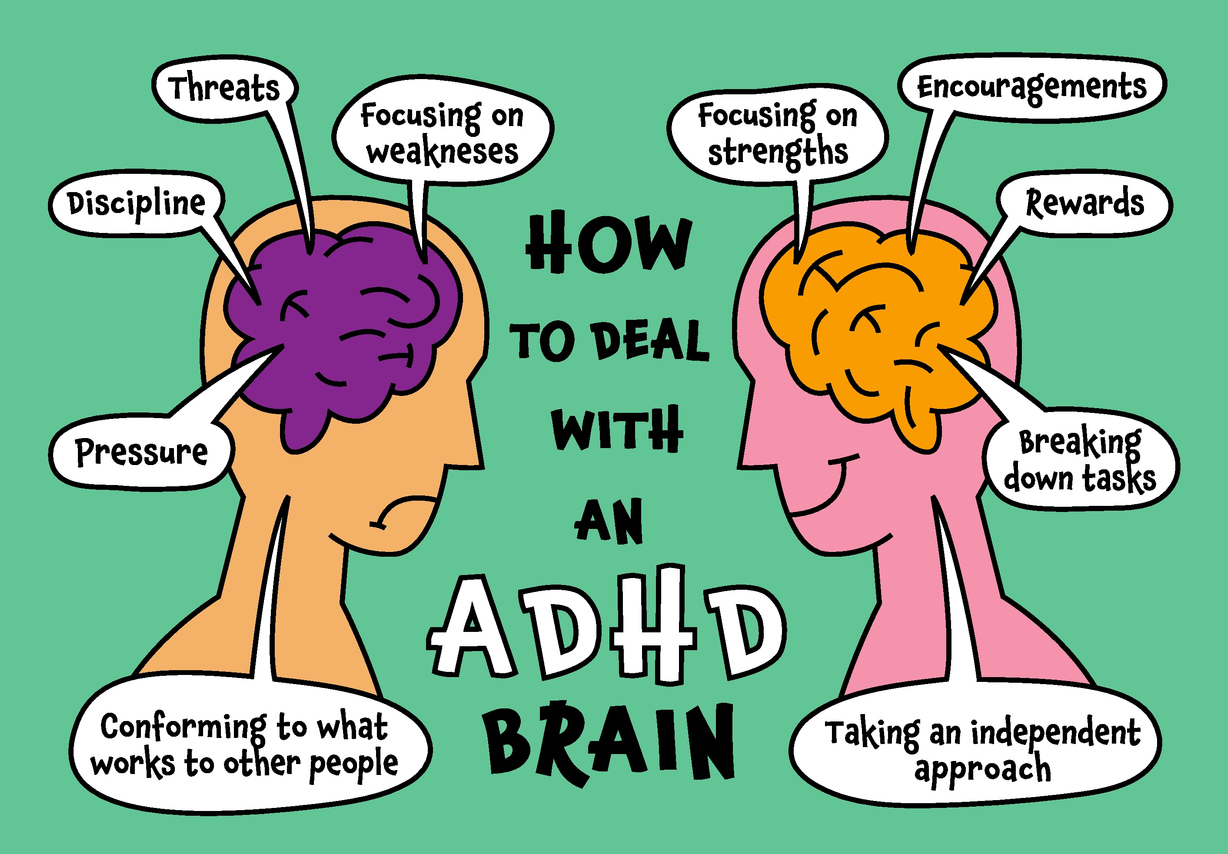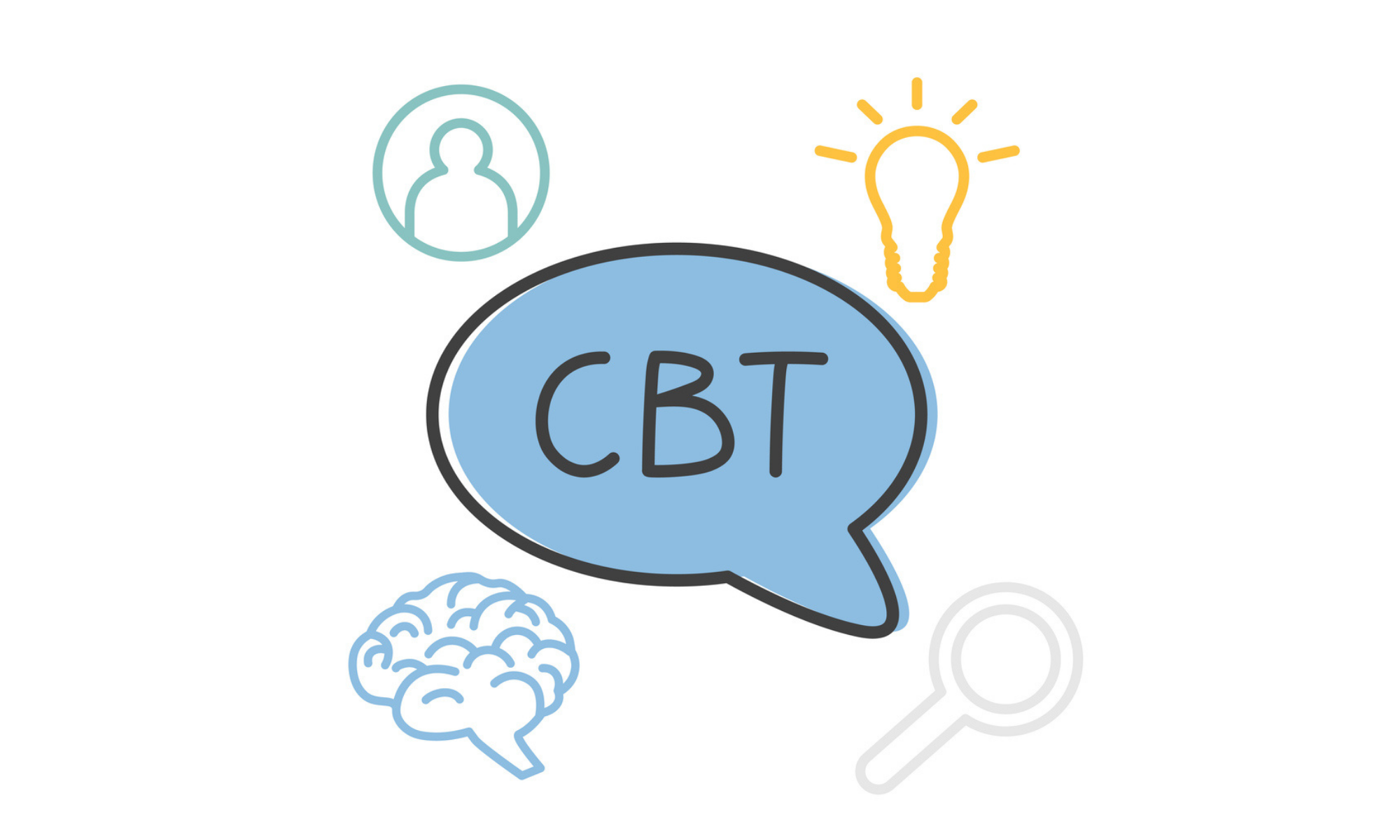
Although medications can be a helpful tool for treating the symptoms of ADHD, whether that be inattentive, hyperactive, or combined type, they are not for everyone. Choosing a treatment plan that suits you is important, as you are more likely to follow through with any plan that addresses your unique needs. Finding an evidence-based treatment is also important when treating ADHD, and one of the leading treatment options for ADHD is Cognitive Behavioural Therapy (CBT).
CBT for ADHD: Addressing Both Practical and Emotional Challenges
CBT addresses not only the practical skills needed to support the day-to-day challenges with executive functioning that ADHD brings, but also the emotional difficulties that can arise. For some, the ongoing symptoms associated with ADHD can create low mood, anxiety and reduced self-esteem (Powell et al., 2021; Quenneville et al., 2022). There is also growing research demonstrating the link between ADHD and emotional dysregulation (Weir, 2024).
What is Emotional Dysregulation?
Never heard of emotional dysregulation before? Emotional dysregulation is characterized by a tendency to react to situations quickly, with intense and sometimes disproportionate emotional responses. This may lead to some being labelled as “too sensitive” or “overreactive,” which can often create feelings of shame and guilt. CBT can help individuals recognize and challenge the harmful beliefs they are led to accept about themselves.
How Does CBT Help?
CBT works to support individuals in recognizing how their thinking, emotions, and behavioural patterns are related and how they impact daily life. Similar to how a medication can have therapeutic benefits for symptom alleviation, CBT offers symptom relief through practical tools and techniques. This style of therapy teaches you to gently challenge and work at shifting unhelpful patterns while building new supportive habits. It can be empowering to see change happen and feel more in control of your mind and body when you are the one orchestrating that change.
The following are some examples of how CBT can be helpful in the treatment of ADHD (Sherman et al., 2019):
- Learning skills to identify and challenge unhelpful thinking and behavioural patterns
- Finding motivation and tackling procrastination
- Creating successful routines and achievable goals
- Implementing self-compassion and emotional regulation skills
Managing ADHD is often a multi-pronged approach. Everyone is different, and what works for one person may not work for someone else. At Cognito, we are here to support you and your choice for how you would like to manage your ADHD symptoms. CBT may be an ideal approach for individuals who are looking for an alternative support to medication.
By Sarah MJ Wiebe
References:
Cleveland Clinic. (2025, March 18). Why emotional dysregulation can happen with ADHD. https://health.clevelandclinic.org/adhd-and-emotional-dysregulation
Powell, V., Agha, S. S., Jones, R. B., Eyre, O., Stephens, A., Weavers, B., Lennon, J., Allardyce, J., Potter, R., Smith, D., Thapar, A., & Rice, F. (2021). ADHD in adults with recurrent depression. Journal of affective disorders, 295, 1153–1160. https://doi.org/10.1016/j.jad.2021.09.010
Quenneville, A. F., Kalogeropoulou, E., Nicastro, R., Weibel, S., Chanut, F., & Perroud, N. (2022). Anxiety disorders in adult ADHD: A frequent comorbidity and a risk factor for externalizing problems. Psychiatry research, 310, 114423. https://doi.org/10.1016/j.psychres.2022.114423
Sherman, C., Ramsay, J. R., & Barrow, K. (2019, November 4). How CBT dismantles ADHD negativity: Cognitive behavioral therapy overview. ADDutude Magazine. Medically reviewed by S. Saline, Psy.D. https://www.additudemag.com/cognitive-behavioral-therapy-for-adhd/
Weir, K. (2024, April 1). Emotional dysregulation is part of ADHD: See how psychologists are helping. Monitor on Psychology, 55(3). American Psychological Association. https://www.apa.org/monitor/2024/04/adhd-managing-emotion-dysregulation


.png)





.png)

